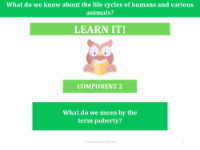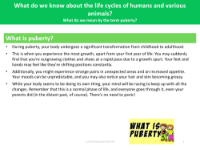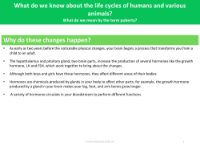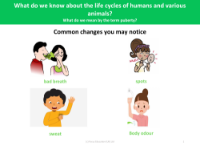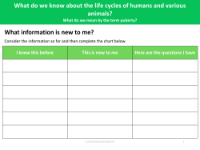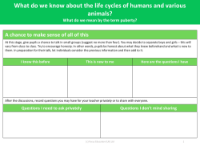What do we mean by the term puberty? - Teacher's Notes
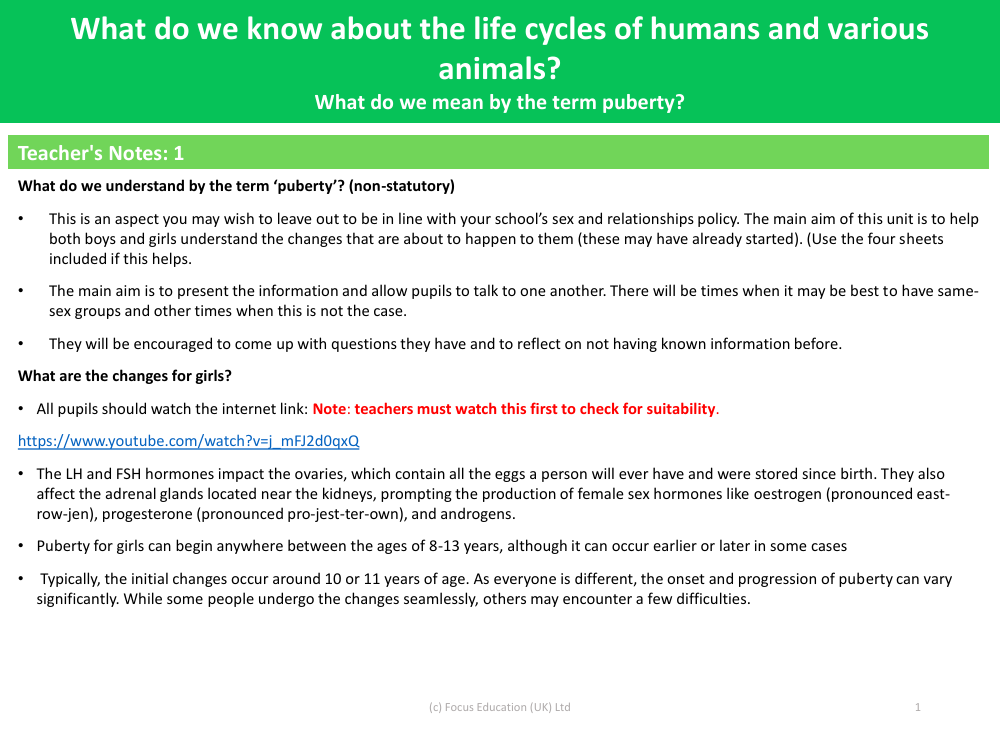
Science Resource Description
Puberty is a significant phase in human development, marking the transition from childhood to adolescence, and ultimately leading to physical maturity and the ability to reproduce. It is a natural process that involves a series of biological changes driven by hormonal activity. During puberty, individuals experience growth spurts, development of secondary sexual characteristics, and other physiological changes. Teachers are advised to align discussions about puberty with their school's sex and relationships policy, and they may choose to utilize provided materials to facilitate understanding among students. It's important to create an open environment where pupils can ask questions and share their experiences or concerns about the changes they are encountering or will soon face.
For girls, puberty typically begins between 8 and 13 years of age, though it can vary. Hormones such as LH (Luteinizing Hormone) and FSH (Follicle Stimulating Hormone) stimulate the ovaries, which contain a female's lifetime supply of eggs, and the adrenal glands, leading to the production of sex hormones including oestrogen, progesterone, and androgens. Boys usually start puberty slightly later, around the age of 10 to 15, with the average onset around 11 or 12 years. The same hormones affect their testes and adrenal glands, resulting in the production of testosterone and sperm. Teachers should preview any online resources before sharing with pupils to ensure the content is appropriate. The experience of puberty is highly individual, with variations in timing and the ease with which young people adjust to these changes.
